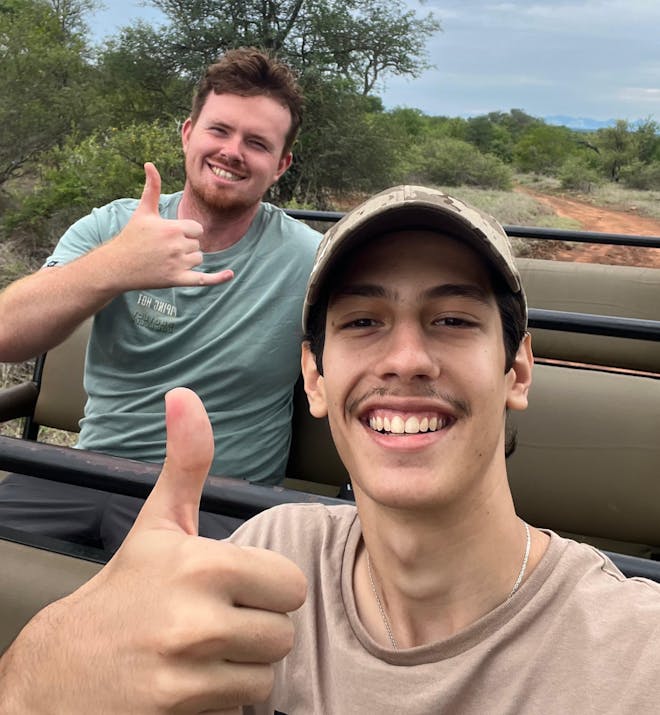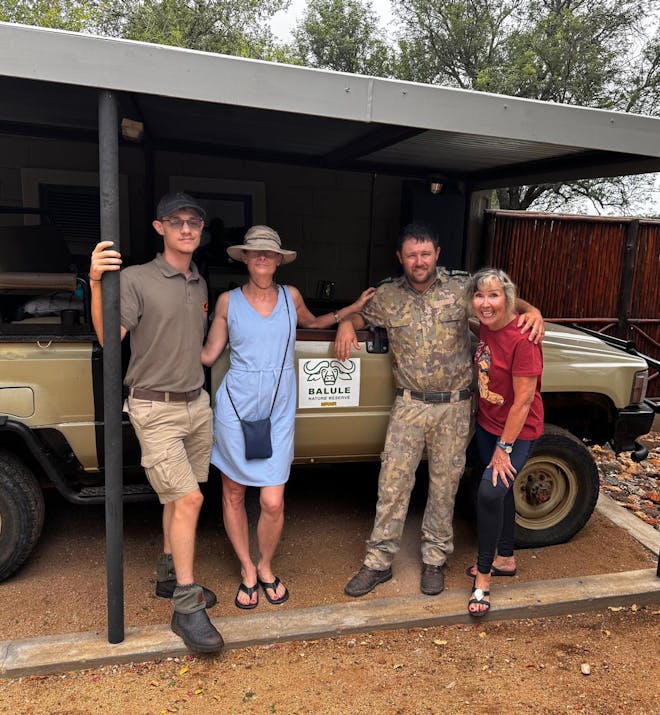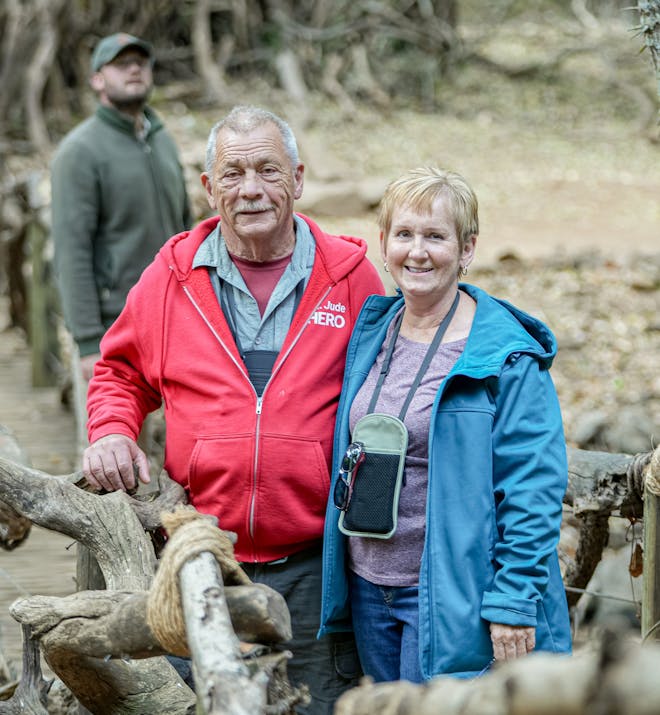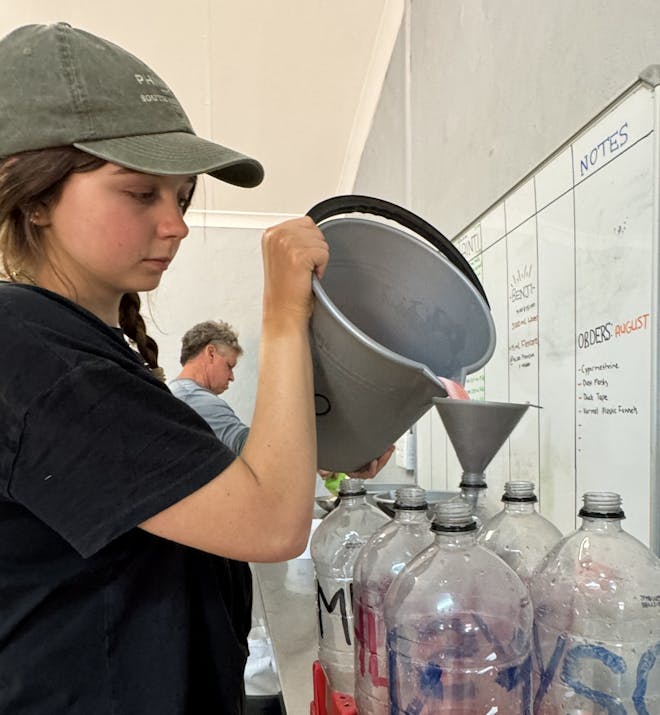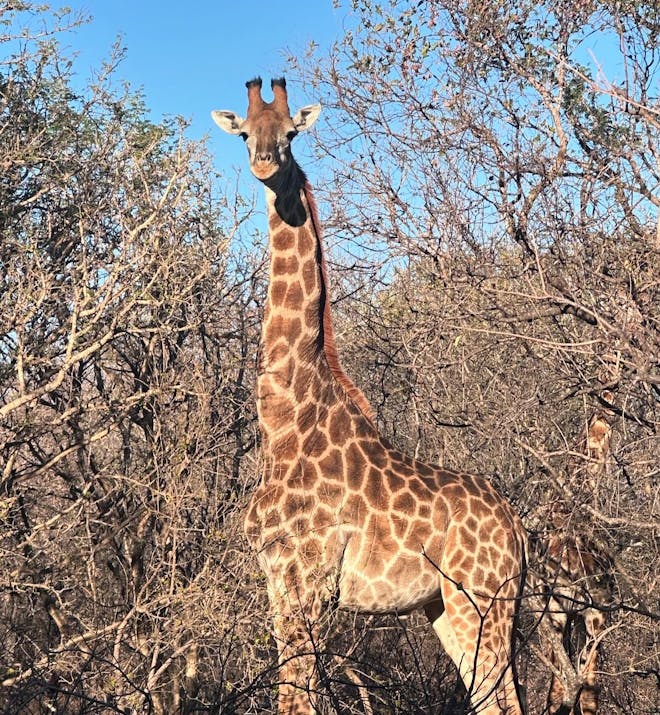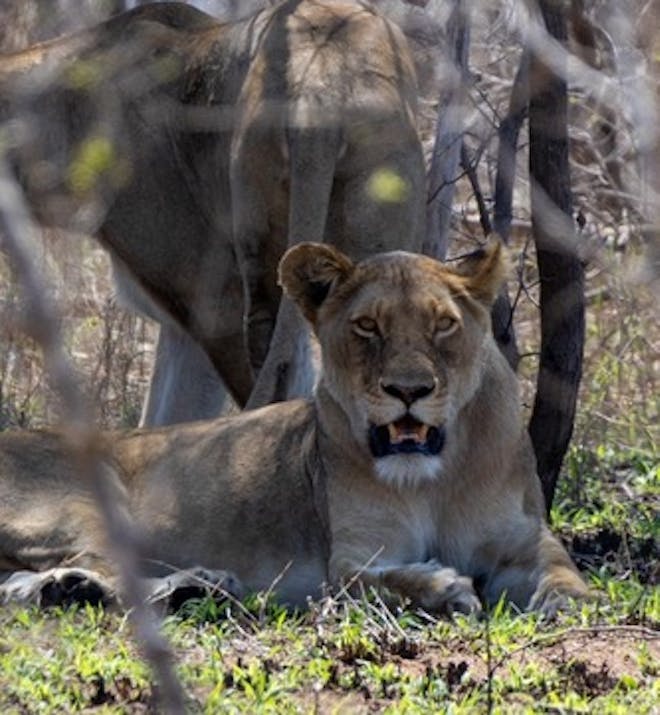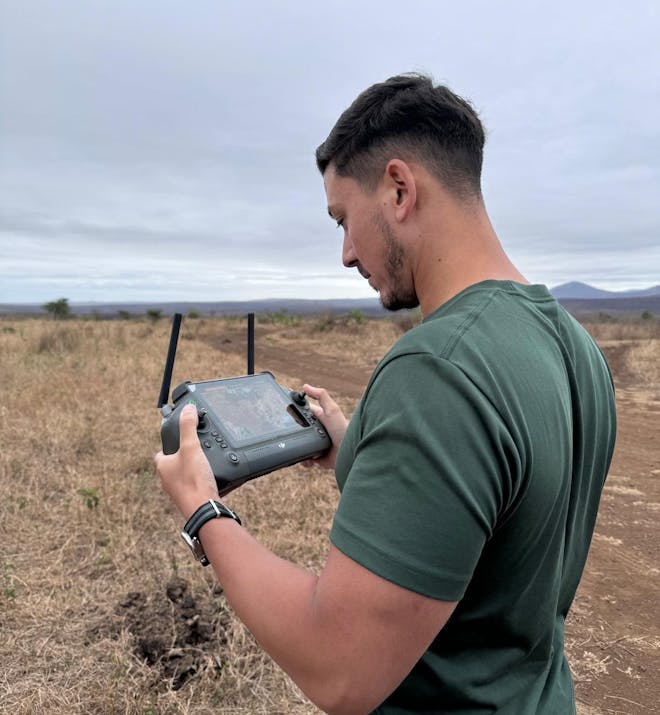
Shimongwe Wildlife Veterinary Experience
Live the life of an African wildlife vet.
In one of the most prolific wildlife areas of southern Africa, our Shimongwe Wildlife Veterinary Experience gives you the chance to join the day-to-day activities of experienced wildlife vets.
As a veterinary volunteer, you’ll find yourself working up close with a range of Africa’s wildlife species – often in situations that are unpredictable and require you to think on your feet. This could involve learning how the vet darts animals, helping to capture and relocate wild animals, or assisting with disease prevention and pregnancy testing in the field.
Depending on your goals and interests, we’ll pair you with an individual or team of vets to give you the best possible exposure to the skills and experiences you’d like to gain.
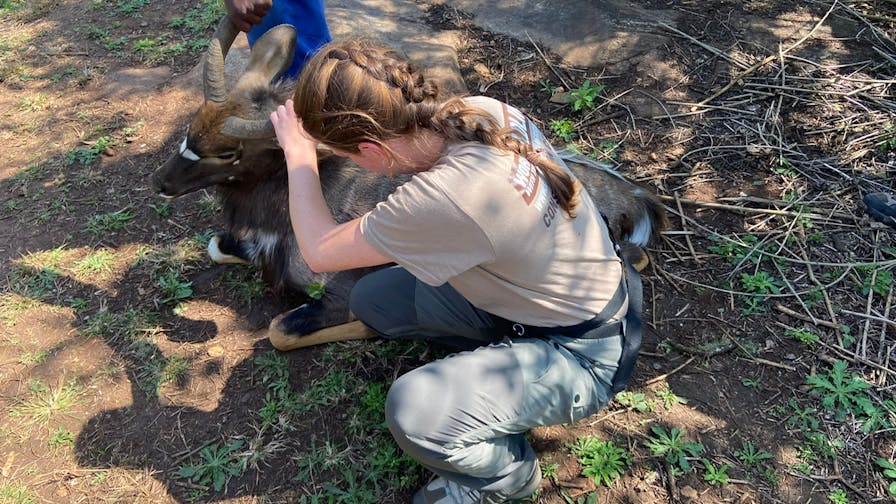

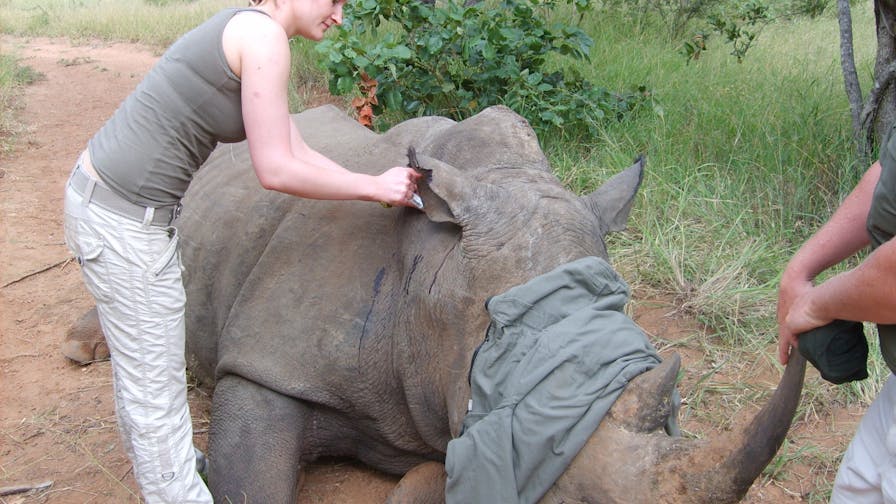
A personalised veterinary experience
Our vet groups range in size from two to ten people, which means you’ll have a personalised experience assisting some of Africa’s most respected wildlife vets in their day-to-day work.
Get involved with animal darting
You’ll be a key member of the vet’s team when they dart wild buffalo, giraffe, rhino and other species. While the animal is immobilised you’ll be responsible for important tasks like monitoring its heart and breathing rates.
Learn new skills
You’ll be fully involved with the treatment and handling of wildlife, including responding to emergency callouts and learning how to immobilise wildlife and test for diseases.
Explore rural Africa
Working in the field, you’ll travel to many different wildlife reserves and explore Africa’s diverse ecosystems. You’ll also gain an insight into the culture of local towns and communities.
Support African wildlife conservation
As a veterinary volunteer, you’ll play an important role in treating and managing South Africa’s famous wildlife.
As a volunteer at Shimongwe, your role will be very hands-on. Depending on the animals being treated, the vet you’re partnered with, and your areas of interest, you’ll get involved in the following activities:
Darting, capturing and collaring
Animals need to be darted for treatment, relocation and monitoring purposes. Species you might get the chance to help dart include antelope, buffalo, giraffe, zebra and sometimes rhino.
- Wildlife darting and game capture
- Chemical immobilisation and sedation
- Tagging, ear notching or fitting tracking collars to darted animals
Real fieldwork
Your time will mostly be spent in the field and, depending on the vet you work with, you may also get to experience life inside a busy veterinary clinic too.
- Treatment of injuries, wounds, health conditions and diseases
- Disease testing and prevention
- Pregnancy testing
- Parasite control
- Contraceptive work to control breeding in rehabilitation centres or manage populations of wildlife reserves
Conservation
- Humane rhino horn trimming – learn about the pros and cons of this controversial topic from the people who actually carry out the procedure
- Wildlife relocation to help manage populations across different regions
As well as gaining hands-on experience, you’ll also receive on-the-job training and get the chance to take part in lectures led by experienced vets. Together, these will give you a unique understanding of the biology, behaviour and conservation of Africa’s wildlife.
Conservation
- Wildlife management’s role in conservation
- The importance of genetic diversity in wildlife populations
- Human-wildlife conflict in South Africa resulting from the spread of towns and cities
- Rhino poaching, anti-poaching methods in the field and relocation programmes
- African wildlife’s relationship to employment and tourism
Biology
- The physiology and anatomy of various African wildlife species
- The natural diet of these wildlife species
Behaviour
- Animal behaviour both in the wild and in captivity
Lectures in the field
- African wildlife diseases
- Wildlife management
- Darting, game capture and relocation
- Veterinary drugs used in South Africa
- Challenges of treating wild animals
- Poaching
- Breeding programmes
- The role of hunting in conservation
Can I volunteer at more than one project and how much will it cost?
Most of our travellers like to combine multiple projects to create a tailor-made trip. The combined price of projects is cheaper than the individual projects added up online.
We offer combinations of conservation projects, transport between them, accommodation and travel insurance as you require. We are a travel operator, not an agent, which means we take full responsibility for your trip which will be financially protected through ABTA and ATOL.
We will discuss your options and tailor your experiences so you can realise your dreams.
- Accommodation
- Airport Meet & Greet
- Transfers
- 24/7 Support
- Personal Guidance
- Meals
